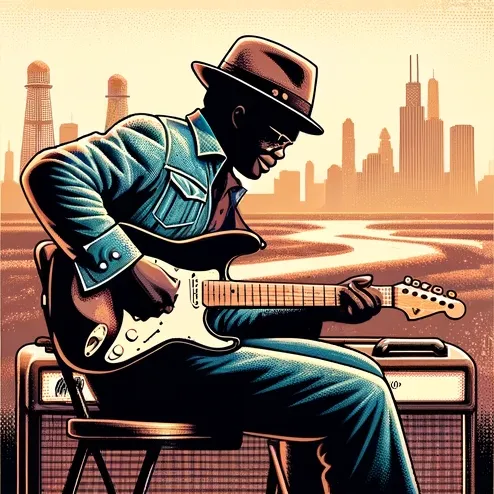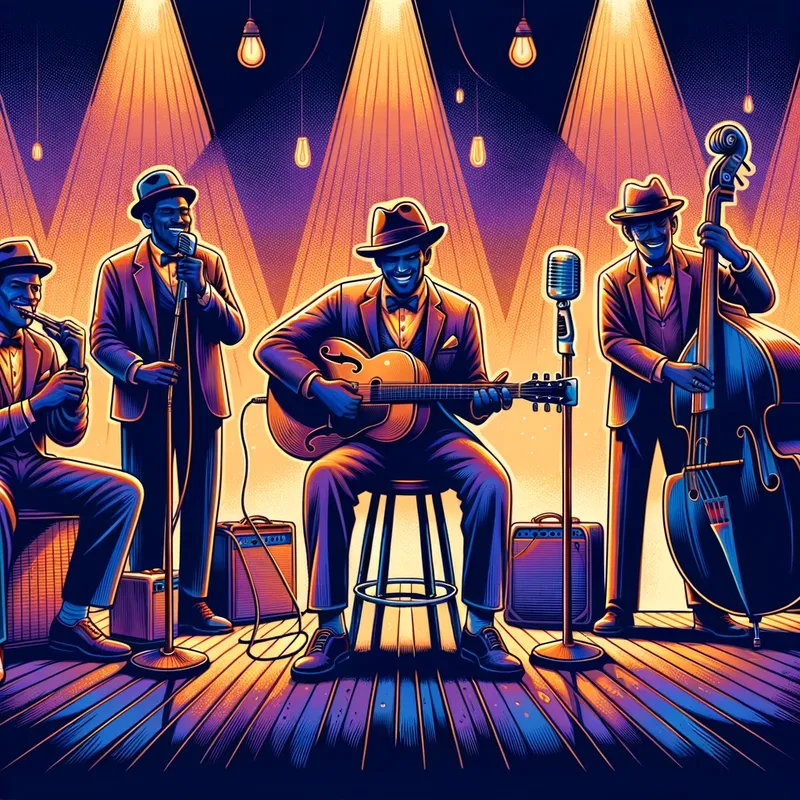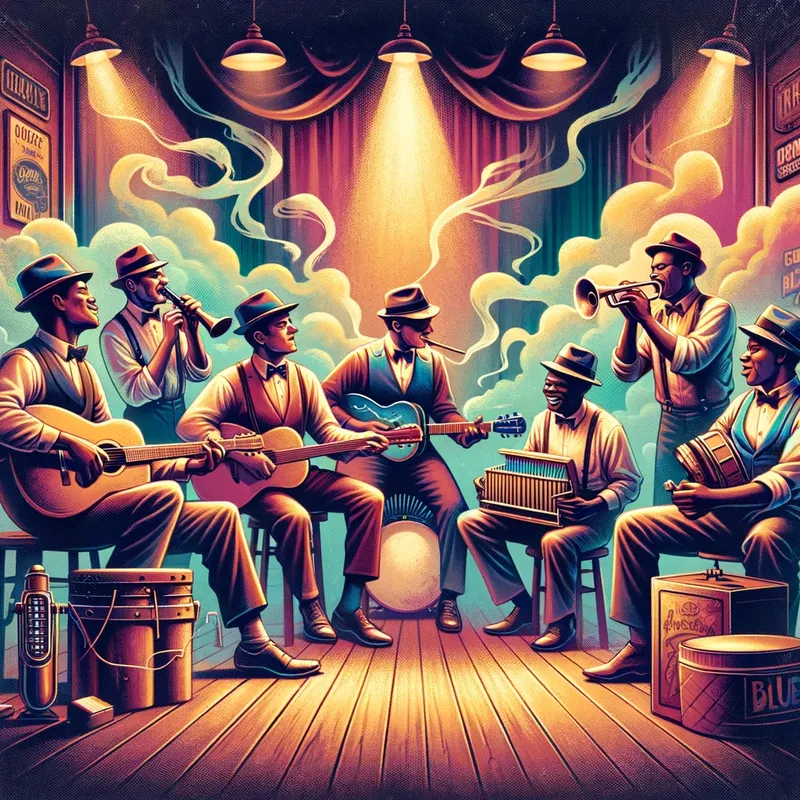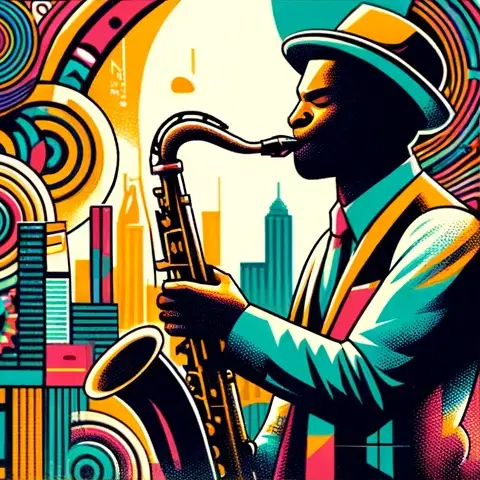Chicago Blues

Chicago Blues is a subgenre of blues music that electrified the traditional, acoustic blues from the Delta. It’s the Chicago’s own version of the blues, loaded with electric guitars, drums, and soul-piercing harmonica.
Table of Contents
How The Delta Met the Windy City
Picture this: It’s the Great Migration, and thousands of African Americans are movin’ on up from the Mississippi Delta to Chicago. They’re bringin’ their music with ’em, lookin’ for work and a better life. But, the city is noisy, packed, and electric. So the blues had to get louder, and that’s exactly what happened.
The Sound
This style amps up the volume with electric guitars, bass, drums, and of course, that wailin’ harmonica. You’re gonna hear a lot more punch, with artists like Muddy Waters and Howlin’ Wolf bringin’ in some heavy sounds.
Key Figures
Muddy Waters, known as the “Father of Chicago Blues,” pretty much set the stage.
Howlin’ Wolf came along with his iconic voice.
Buddy Guy added a more modern twist with a rock influence.
Willie Dixon, the great songwriter and bassist, penned some of the most classic tunes.
And let’s not forget the harmonica masters like Little Walter, who turned that little instrument into a powerhouse.
The Legacy
Chicago Blues’ fingerprints are all over modern music. You ever hear of The Rolling Stones? They named themselves after a Muddy Waters’ song! The Beatles, Clapton, Hendrix – they all took a page from Chicago Blues.
The Record Labels
Chess Records. This iconic label put Chicago Blues on the map. Without Chess, who knows if Muddy Waters and Howlin’ Wolf would have gotten the attention they deserved? They were the first to really capture that sounds on vinyl.


